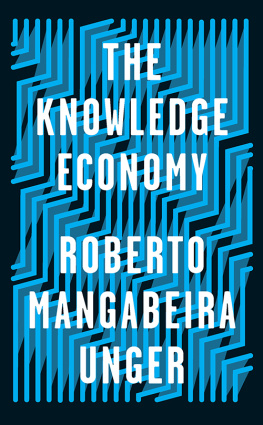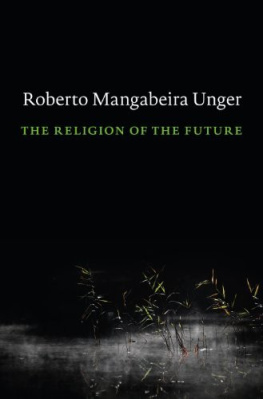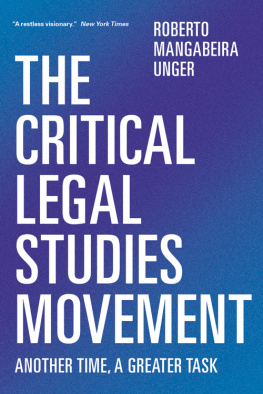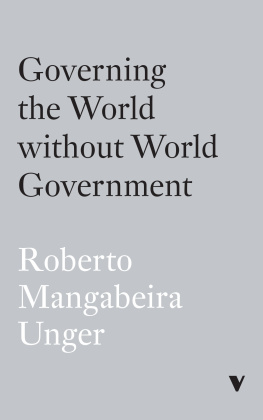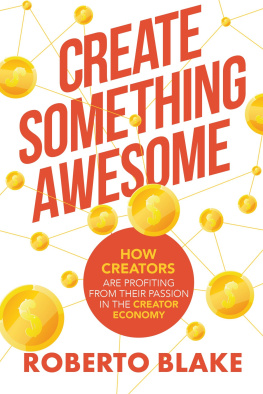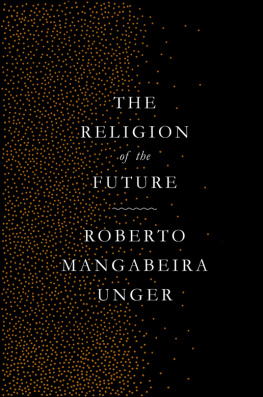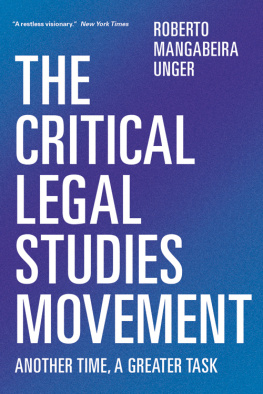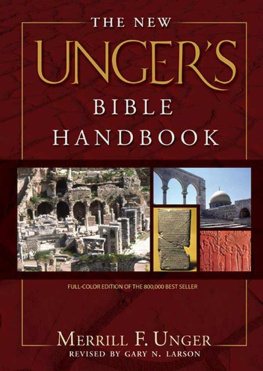Roberto Mangabeira Unger - The Knowledge Economy
Here you can read online Roberto Mangabeira Unger - The Knowledge Economy full text of the book (entire story) in english for free. Download pdf and epub, get meaning, cover and reviews about this ebook. year: 2019, publisher: Verso, genre: Religion. Description of the work, (preface) as well as reviews are available. Best literature library LitArk.com created for fans of good reading and offers a wide selection of genres:
Romance novel
Science fiction
Adventure
Detective
Science
History
Home and family
Prose
Art
Politics
Computer
Non-fiction
Religion
Business
Children
Humor
Choose a favorite category and find really read worthwhile books. Enjoy immersion in the world of imagination, feel the emotions of the characters or learn something new for yourself, make an fascinating discovery.
- Book:The Knowledge Economy
- Author:
- Publisher:Verso
- Genre:
- Year:2019
- Rating:5 / 5
- Favourites:Add to favourites
- Your mark:
- 100
- 1
- 2
- 3
- 4
- 5
The Knowledge Economy: summary, description and annotation
We offer to read an annotation, description, summary or preface (depends on what the author of the book "The Knowledge Economy" wrote himself). If you haven't found the necessary information about the book — write in the comments, we will try to find it.
Roberto Mangabeira Unger: author's other books
Who wrote The Knowledge Economy? Find out the surname, the name of the author of the book and a list of all author's works by series.
The Knowledge Economy — read online for free the complete book (whole text) full work
Below is the text of the book, divided by pages. System saving the place of the last page read, allows you to conveniently read the book "The Knowledge Economy" online for free, without having to search again every time where you left off. Put a bookmark, and you can go to the page where you finished reading at any time.
Font size:
Interval:
Bookmark:

ECONOMY
Roberto Mangabeira Unger

First published in English by Verso 2019
Roberto Mangabeira Unger 2019
All rights reserved
The moral rights of the author have been asserted
1 3 5 7 9 10 8 6 4 2
Verso
UK: 6 Meard Street, London W1F 0EG
US: 20 Jay Street, Suite 1010, Brooklyn, NY 11201
versobooks.com
Verso is the imprint of New Left Books
ISBN-13: 978-1-78873-497-4
ISBN-13: 978-1-78873-500-1 (US EBK)
ISBN-13: 978-1-78873-499-8 (UK EBK)
British Library Cataloguing in Publication Data
A catalogue record for this book is available from the British Library
Library of Congress Cataloging-in-Publication Data
A catalog record for this book is available from the Library of Congress
Typeset in Minion Pro by Hewer Text UK Ltd, Edinburgh
Printed in the US by Maple Press
Practice of Production
A new practice of production has emerged in all the major economies of the world. The simplest and most telling of its many names is the knowledge economy. We might also call it the experimental economy to highlight its most characteristic attitude toward its own work. The knowledge economy holds the promise of changing, to our benefit, some of the most deep-seated and universal features of economic life and of dramatically enhancing productivity and growth.
Its effects have, however, so far proved modest. Instead of spreading widely, it has remained restricted to vanguards of production, employing few workers. Entrepreneurial and technological elites control it. A handful of large global firms have reaped the lions share of the profits that it has so far yielded. It appears in every part of the production system; the habit of equating it with high-technology industry is unwarranted. In every sector of the economy, however, it remains a narrow fringe, excluding the vast majority of the labor force. Even though its products are used ever more widely, its revolutionary practices continue to be quarantined.
If only we could find a path from these insular vanguards to socially inclusive ones we would have built a powerful motor of economic growth. We would also have supplied an antidote to inequality far more forceful than the after-the-fact correction, by progressive taxation and redistributive social spending, of inequalities generated within established market regimes. The true character and potential of the new practice of production remain disguised: by virtue of being insular, the knowledge economy is also undeveloped. The technologies with which it has been most recently associated, such as robots and artificial intelligence, have riveted worldwide attention. Nevertheless, we have barely begun to grasp its significance for economic and social life or gained insight into its possible futures.
This book presents a view of the knowledge economy, of the causes and consequences of its confinement, and of the passage from its present insularity to its possible inclusive-ness. The established body of economic ideas is useful, and even indispensable, but it is also insufficient for an understanding of these problems. Received economic theory leaves us short of the insights that we need to guide the institutional and policy changes required to take us from the insular knowledge economy that we have to the inclusive one that we need. The effort to think through the agenda of an inclusive vanguardism prompts us to reassess the alternative futures of economics as well as the alternative futures of the economy.
This situation in economic reality and in economic thought confronts all nations, especially developing countries, with a dilemma that has now come to the forefront of practical political economy. Conventional industrialization, as a guarantee of economic growth and of convergence to the level of the richest economies, has stopped working. However, the alternativethe advancement of a broad-based, economy-wide form of the knowledge economyseems to be inaccessible. Not even the richest economies, with the most educated populations, have achieved it. Is it not a goal beyond reach for the rest of the world?
In every moment of economic history, there is a most advanced practice of production. It may not be, when it first appears and begins to spread, the most efficient practice: the one that achieves the greatest output relative to the inputs required. It is, however, the most promising practice: the one with the greatest potential to reach and to stay at the frontier of productivity, and to inspire change across the economy. It possesses, in higher measure than rival practices of production, the attributes of fecundity and versatility, attributes that assume varied forms in different settings.
In the past, the most advanced practice of production has been associated with a particular sector of the economy: manufacturing, for example, in contrast to agriculture or services. However, the most advanced practice may appear, instead, as a piece of many sectors rather than remaining identified with only one.
The two greatest thinkers in the history of economicsAdam Smith and Karl Marxbelieved that the best way to discover the deepest truths of economics was to study the most advanced practice of production. For them, it was mechanized manufacturing as it had appeared in the early years of the Industrial Revolution of the late eighteenth century, to be followed by the industrial mass production of the later nineteenth century. Smith and Marx were right to take the study of the most advanced practice as the gateway to economic insight.
The study of the most advanced practice of production is the most rewarding source of insight into the workings of the economy and its possible futures because the most advanced practice is the variant of economic activity that most fully reveals our powers. Just as the most advanced practice changes over time, as one most advanced practice succeeds another, so does our conception of what makes a practice more advanced than its predecessors also shift. In the light of the most advanced practice of our time, we change ideas about how economies do and can work. We reconsider the whole of economic history.
To todays most advanced practice of production I give the familiar label the knowledge economy and go on to characterize it, explain it, and explore its alternative futures. Our encounter with the knowledge economy suggests a new criterion for what makes a practice of production the most advanced. In one sense, it is the practice of production that is closest to the mind, and especially to the part of our mental life that we call the imagination. In another sense, this most mindful practice is the one that, among all available forms of economic activity, most intimately and continuously connects our experiments in using and transforming nature and our experiments in cooperating. It connects them by using each of these sets of experiments to stimulate the other. One of the best ways to think about technology is to view it as an expression of the marriage between these two kinds of experiments: the ones that change nature and the ones that change how we work together.
As we look back on economic history from the vantage point of the knowledge economy, we can see earlier most advanced practices of production with new eyes. Each of them was also the most mindful practice of its time and the one that brought most closely together our experiments in mobilizing nature for our benefit and our experiments in changing the way in which we cooperate in production. These reasons for the distinction enjoyed by the most advanced practice of production show why it is the practice that best reveals our characteristic powers: those that make us who we are. No wonder that studying it is the quickest and most reliable route to the development of economic theory.
Font size:
Interval:
Bookmark:
Similar books «The Knowledge Economy»
Look at similar books to The Knowledge Economy. We have selected literature similar in name and meaning in the hope of providing readers with more options to find new, interesting, not yet read works.
Discussion, reviews of the book The Knowledge Economy and just readers' own opinions. Leave your comments, write what you think about the work, its meaning or the main characters. Specify what exactly you liked and what you didn't like, and why you think so.

